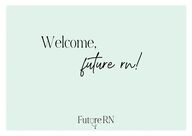
Return to flip book view
Message Welcome,future rn!
Test taking strategy
When answering an exam question, always apply the nursingprocess:Your nursing actions should always take place in thefollowing order (this is the nursing process):•Assessment•Analysis•Planning •Implementation•Evaluationnursing process
Remember, other words and phrases can also meanassessment: • Assess• Check• Detect• Identify• Monitor• Observe
When prioritizing care according to Maslow, you prioritizephysical needs:AirwayBreathingCirculationMaslow's Hierarchy
Maslow states that physiological (physical) needs are the most basichuman need of all. Only after physiological needs have been met,can safety concerns be addressed. Only after safety concerns aremet, can psychosocial needs be addressed.Bottom line:-PHYSICAL care before SAFETY-SAFETY before PSYCHSOCIAL (pain is psychosocial)* Use Maslow’s hierarchy to establish priorities when more than oneanswer appears correct
• Patient safety takes high priority. You’ll encounter many questions thatcan be answered by asking yourself ”Which answer will best ensure thesafety of this client?”• Always check the client first, the equipment can wait.• Least restrictive: Consider options that are least restrictive or leastinvasive.• When given choices that are pharmacologically based or non-pharmacologically based, choose the non-pharmacological interventionfirst.patient safety
Avoid:-Telling the client what to do-Asking a question that can be answered with a “yes” or “no”-Implying disapproval of the client’s behavior-Asking the client “Why?”-Offering false reassurance-A response that involves the nurse, not the client-Saying “do not worry”therapeutic communication
Instead, look for responses that:•Allow the client time to think and reflect•Encourage the client to talk•Reflect that the nurse has listened to the client, such asparaphrasing the client’s responsetherapeutic communication
Think about what action the RN can do before calling the provider.don't pass the buck
•Choose an answer for the ideal situation, not the real world. •Answer questions as if you have unlimited time, staff andequipment. ideal situation, not the real world
•Use caution with answers that include global words such as“always, all, everyone, none, only, every, must.”•These words imply there are no exceptions.•There are very few instances in which a correct answer is THATabsolute. always, all, everyone, none, only,every, must
•Read each answer carefully. •Don’t read into the question!•Answer the question in your head, before looking at theanswers.•Utilize a true/false method for select all that apply.•If you’ve never heard of an answer, don’t pick it!•Avoid adding information to the situation.•Don’t refer to personal experience. other strategies
Practice Questions
After surgery, a client with diabetes complains of nauseaand appears lethargic and flushed, with BP 108/78, P 100and RR 24. What is the next action?A. Call the providerB. Check the client’s glucoseC. Consider giving an antiemeticD. Change the IV infusion rate
BThe nurse should assess (B) before calling the MD (who maythen order an antiemetic and alter the IV infusion rate).
A client reports severe pain after surgery. Which actionshould the nurse perform first?A. Offer reassurance to the client that the pain shouldimprove soonB. Allow the client time to verbalize his or her feelingsC. Check the client’s vital signsD. Administer an analgesic
CTwo of the options – C and D address physical needs. Options Aand B address psychosocial concerns. According to Maslow,physical needs come before psychosocial needs, so you caneliminate options A and B.Now, consider the nursing process when considering the remainingoptions. Option C is to assess and option D is to intervention. Assessment comes before intervention.
A client is admitted for treatment of a breast tumor. She asksthe nurse, “Do you think I have cancer?” Which response by thenurse would be most therapeutic?A. “Your physician can tell you more about it.”B. “Most women your age have some kind of breast problem.”C. “We won’t know for sure until you undergo some tests.”D. “You sound like you’re concerned about what the physicianwill tell you?”
DThis response allows the client to express feelings andpromotes further discussion.
A client returns from an endoscopic procedure during which hewas sedated. Before offering the client food, which actionshould the nurse take?A. Assess the client’s blood pressure.B. Check the client’s gag reflex.C. Place the client in a side-lying position.D. Have the client drink a few sips of water.
BThe nurse must assess a client before intervention – therefore,you can eliminate C and D.This leaves option A and B. Your nursing knowledge is requiredto get to the correct answer - B. Sedation required for aprocedure may impair the clients gag reflex, so you would assessthe gag reflex before giving food to the client to reduce the riskof aspiration.
What is the priority nursing care for a client after ECT?A. Inform the family of the clients statusB. Reorient to time and placeC. Put the side rails upD. Explain that memory loss is an expected outcome
CWhen all options are correct (as in this case), select thephysical aspect of care (safety & Maslow) first (C) rather thaneither of the psychosocial options.
let''s talk tutoring and nclex
its easy to get here, hard to stay here. You're doing it.